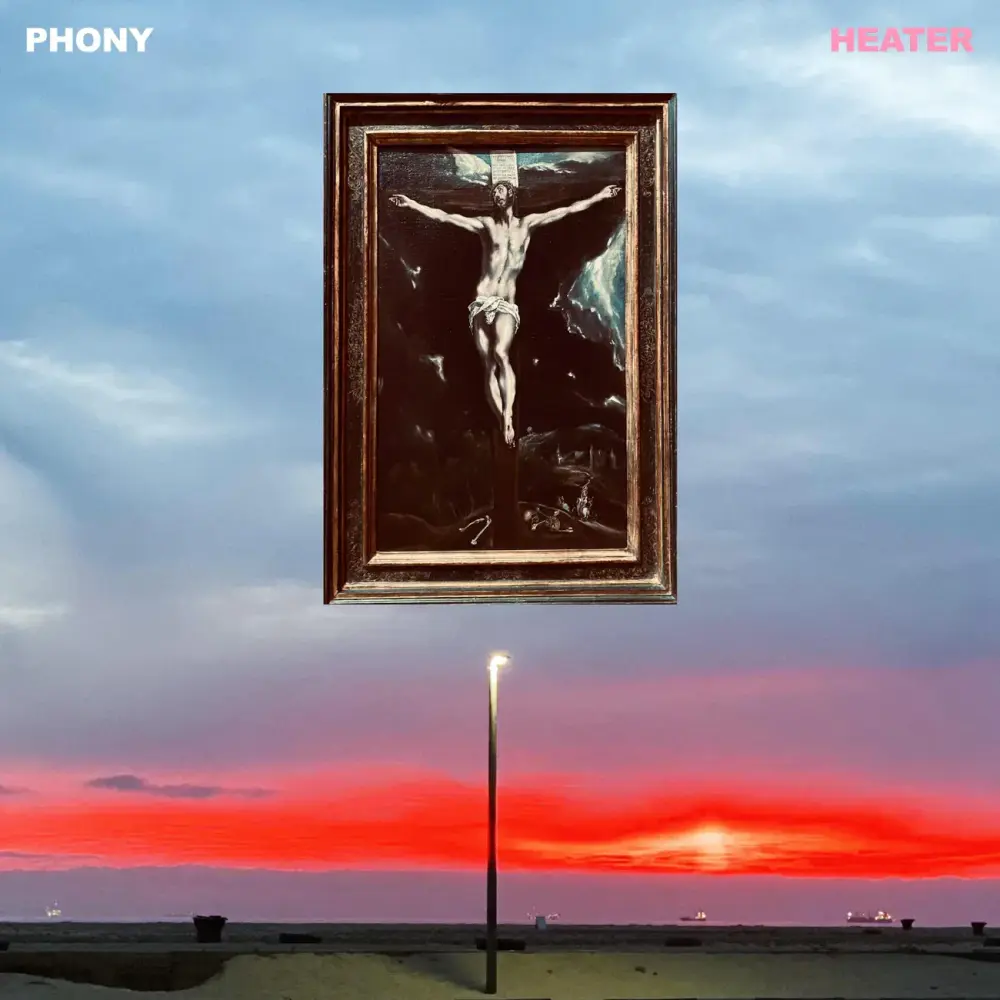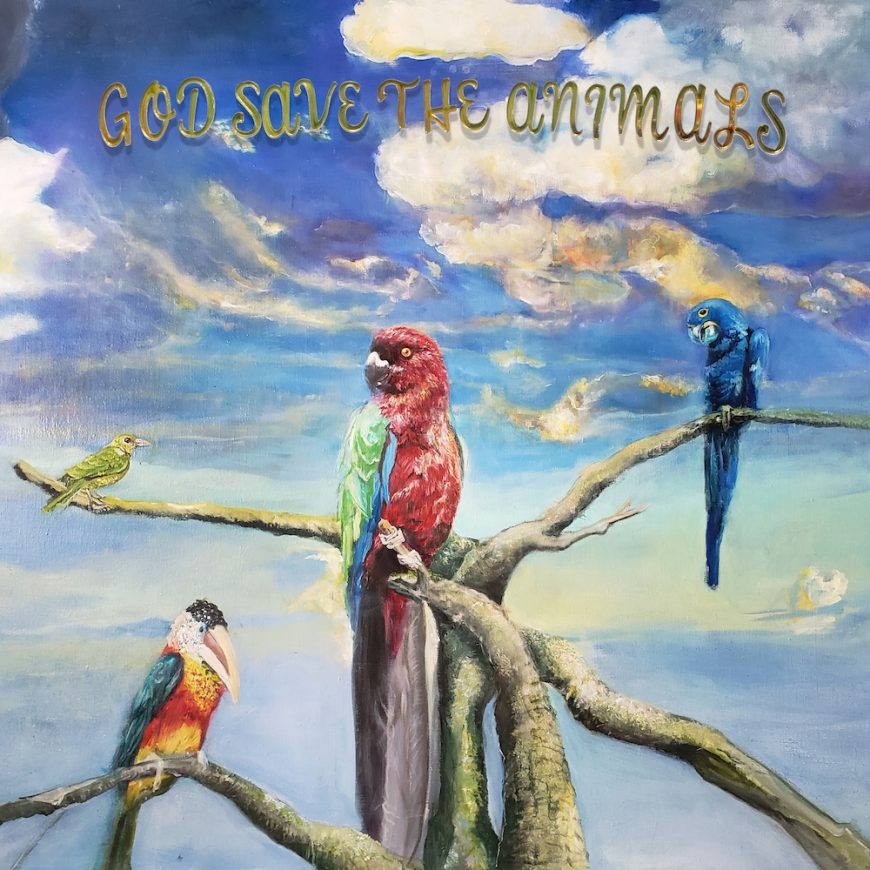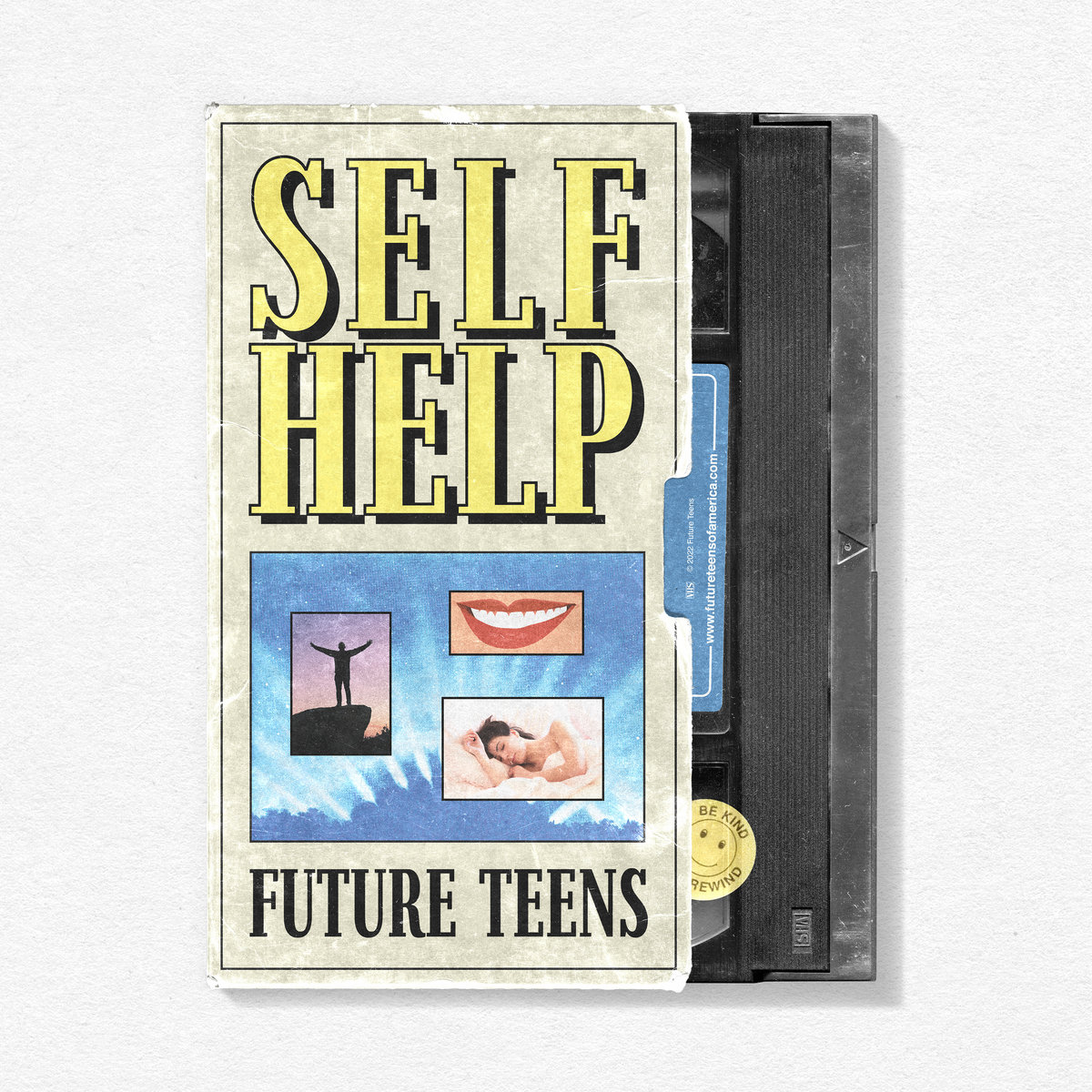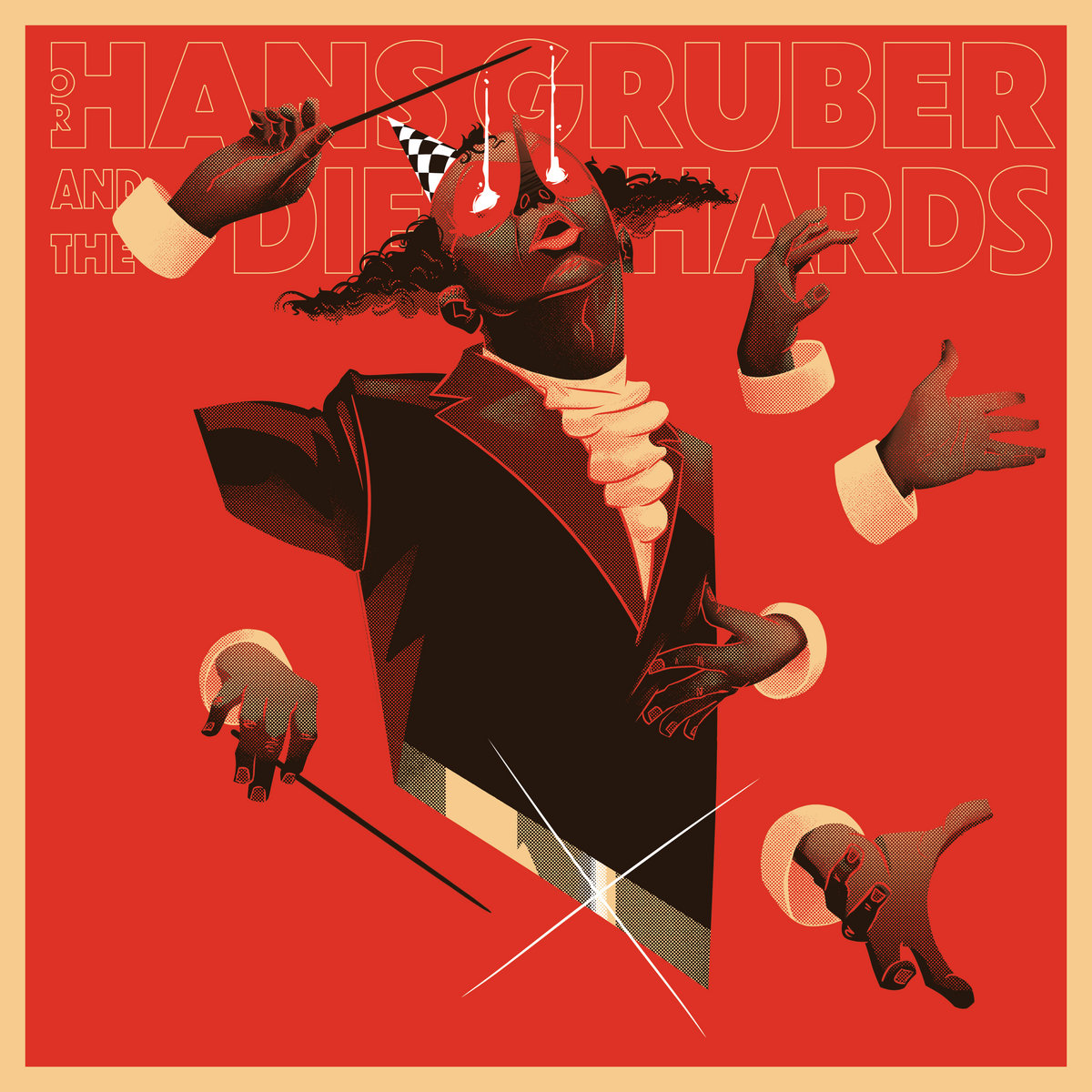PHONY – Heater | Album Review
/Counter Intuitive Records
I’m a known short album enjoyer, and Heater, the new album from PHONY, just might be the best example ever. The record is a scant nine songs that add up to a grand total of 21 minutes; that’s just two minutes longer than I Became Birds or your favorite Joyce Manor album. It makes sense then, that in 2021, the latter would enlist Neil Berthier to play guitar and synth in support of their then-upcoming record 40 oz. to Fresno.
While his ongoing Joyce Manor tenure might net him a lot of cred in millennial emo circles, Berthier has been creating excellent records under the PHONY moniker as far back as 2019. That’s not to mention the half-decade he spent fronting the now-defunct Donovan Wolfington. So it should come as no surprise that Heater is as refined and punctual as it is. This is the sound of someone who’s been at it for over a decade, and this album specifically sees PHONY refining the pop-punk formula into a glossy collection of shredders that are pointed, addicting, and deliver a complete arc within the time it takes to watch an episode of Spongebob.
Things kick off with “Caroline,” a re-recording of a song initially released as a one-off single last year as a prelude to PHONY’s third album. While I had assumed Caroline was doomed to obscurity as a non-album loosie, it’s nice to hear the song here perched at the onset of a new record, gaining a well-deserved second life in the process. In comparing the two versions, it’s fascinating how they each embody their respective “eras” so well: while the 2022 Caroline is still peppy and energetic, it fits better in the disaffected, disorienting, and death-obsessed world of the album that came after it. In contrast, the 2023 Caroline is snappier and scrappier, with a brighter vocal take that signals to longtime fans they’re in for something different than last year.
Following this revisitation of an old single-name classic, PHONY spends the remainder of Side A ripping through the album’s three singles in reverse order. “Card In A Spoke” springs to life with a bouncy drum pattern that sounds like a dribbling basketball or a heartily-thrown dodgeball. This is only the warm-up though, because everything explodes to life when the rest of the instruments slam into the track about 24 seconds in. Wielding a snotty pop-punk riff and hard-charging rhythm section, Berthier desperately searches for signs of life and a sense of time following a crashlanding on alien terrain. The group can hardly wait a minute before getting to a guitar solo and then rolling back into the chorus again, ironically making the listener also feel like a card in a spoke getting beaten with the repeated prongs of energy stemming from the band.
“World You Love” begins with a waltz but quickly builds into a full-body ballroom sway as images of bloody sidewalks and brain-frying boardwalks flash between cathartic cries of “REALLY WHO GIVES A SHIT!?” One proggy guitar solo later, and we’re dumped off into “Chinatown,” the album’s lead single and one of my favorite songs of the year. Perhaps the closest to the maudlin vocal stylings of AT SOME POINT YOU STOP, this song has a fun drum beat and attention-grabbing opening moment as Berthier explains to some faceless other, “You were built for speed, and I was built to last.” From there, the song slides headfirst into a jumpy punk section as we hear tales of sunshine and tequila shots delivered in an enthusiastic shout.
After a pretty relentless outpouring of energy over the first ten minutes, “Roof” acts as a solitary moment of reflection before jumping into the record’s back half. Based around a simple piano line, this track is the perfectly placed interlude slotted right in the middle of the album and almost feels like a mirror to last year’s “KALEIDOSCOPE.” More a scene-setting exploration of drunkenness and disconnection, some studio chatter punctuates the minute-long excursion before the album’s remaining four songs swoop us back into the pop-punk mayhem.
Just as was the case with the first half of the album, almost each of the songs on Side B boasts a catchy hook, cocky vocal delivery, and flashy guitar solo. Things rarely dip below 100 bpm, “Water In Your Wine Glass” is the closest thing the album gets to a “slow song,” and even then, PHONY can’t help but build up to a snappy little guitar solo midway through. Similarly, “County Line” eases into things with a somber beginning, but that only lasts about 20 seconds when the band roars to life for the chorus.
Heater resolves on “Pass The Ball,” a song that touches on touring life, alcoholism, and learning how to commit to something. To me, this song is really about partnership and learning how to share yourself with someone else, whether that be in a romantic, platonic, or creative setting. The lyrics promise, “You could really have it all / if you learn to pass the goddamn ball.” This mantra is delivered calmly at first but then in a near-scream by the end. As the title of the song is repeated, the guitar crescendoes into a post-rock wall of noise and, most shockingly, some Sweater-Song-esque “oooh ooohs” appear to sing the listener off. All in all, it’s a very big swing that ends up feeling like the perfect closer to a blisteringly fast record.
I know I’ve talked a lot about the speed and tempo of these songs, but it’s surprising just how amazingly everything flows when placed together. These tracks feel like an amazing synthesis of emo and pop-punk, all delivered in a style that feels true to this project and Berthier’s last ten-ish years of music-making. It’s stunning to hear an album this complete and fulfilling delivered in just 21 minutes, and the crazy thing is you can just let it all roll from the top again.
Up until now, I haven’t talked too much about AT SOME POINT YOU STOP, the PHONY album that came out before this one. That record was one of my favorites of 2022 and fleshed out a world of emotional indie rock unlike any I’ve ever heard. While it was an album about death, loss, and reconfiguration, the bigger question it leaves the listener with is what comes after. Heater, it turns out, answers that question with an emphatic collection of songs where life flashes by at superspeed. These songs are the sound of someone experiencing existence after a sort of cosmic reset that rendered everything before it null. They’re fast because that’s exactly how things unfold in the real world. When I throw on this record and the songs each blaze past me, I’m reminded of this fact. Everything is fleeting, and we’re just lucky to be here taking in the scenery—a card in the spoke, flickering along and enjoying the ride for as long as we can.













